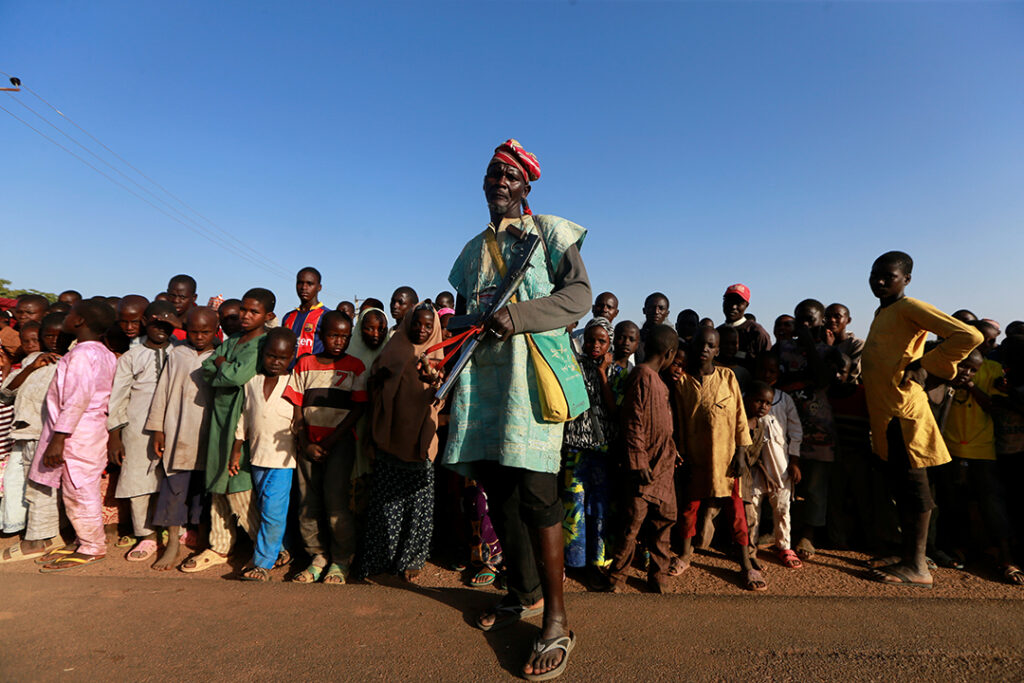ADF STAFF
The gun-toting men arrived on motorbikes outside the boys’ secondary school in Kankara, Nigeria.
They shot the school guard and roused frightened children from their beds. The attackers stripped the children of valuables and ordered them to march through the school gate and into a forest where the group made their camp. In all, more than 340 schoolboys were abducted.
“They commanded the crowd like a herdsman herds the sheep,” an escapee told CNN.
In the coming days, members of the group released a video demanding a ransom for the boys’ release. They said they were part of the brutal terror group Boko Haram. In an unverified audio message, Abubakr Shekau, the leader of a faction of the terror group, endorsed the affiliation and claimed credit for the attack.
The incident ended without violence. Security forces surrounded the Rugu Forest hideout, and the outnumbered abductors released the boys.
But the link to Boko Haram troubles observers. The abductors mostly were local bandits known by authorities to engage in cattle theft and other crimes. They were not previously believed to be extremists.
The abduction is prompting fear of a growing alliance between bandits and terror groups.
It “bears the operational footprints of the Boko Haram group that has perfected the act through previous abductions of schoolgirls in Chibok and Dapchi in northeastern Nigeria,” Oluwole Ojewale of the Institute for Security Studies wrote for the Brookings Institution. “This incident gives credence to the jihadists’ perpetual attempt to forge an alliance with splinter terror groups in the northwest.”
In much of northwest Nigeria the term “bandit” is used to describe young Fulani herdsmen who engage in cattle rustling. In recent years the practice has grown more violent and expanded to attacks on villages and kidnappings. Clashes between farmers and herders have grown bloodier, with more than 1,000 people killed each year, mainly in Nigeria’s Middle Belt and North West.
As the violence has escalated, groups of bandits have sought help and traveled to Boko Haram-controlled northeast Nigeria and terrorist-held areas of neighboring countries to procure weapons.
Boko Haram sees the growing alliance as an opportunity to drive a wedge between ethnic groups within the northwest. Ansaru, a faction of Boko Haram, has sent radical clerics to the area to preach against democracy and denounce government-led peace efforts, the Africa Center for Strategic Studies reported.
In June 2019, Maj. Gen. Jide Ogunlade, theater commander for Operation Hadarin Daji in northwest Nigeria, warned that hardened terrorists had entered the region and were infiltrating the ranks of bandits. “Banditry is now heading toward terrorism,” he said.
Nigerian analyst Audu Bulama Bukarti believes each side stands to benefit from the alliance. Boko Haram gains manpower and can expand into the northwest part of the country. The bandits gain money and arms from the well-financed terror group and a new way to justify their attacks.
“Gangs stand to gain a moral justification for their crimes by framing their actions as part of a jihad approved by Allah and their gains as booty of war permitted by Islam,” Bukarti wrote for the website African Arguments. “This may make them more vicious and allow them to recruit more young people.”
Even more concerning is the possibility that the bandit-terrorist alliance could give Boko Haram a “land bridge” that lets it link its territory in northeast Nigeria with groups already operating in the Sahelian zones of Burkina Faso, Mali and Niger.
Bukarti believes the government response must be immediate and multidimensional to prevent the alliance from deepening. This includes military and police efforts but also jobs programs, infrastructure and an active confrontation of the “perverse interpretation of Islam” offered by extremist groups.
“The Kankara kidnapping has provided an unmistakable signal to the Nigerian government and their partners that must now grasp the long-term challenge that Boko Haram represents,” Bukarti wrote. “Only a localised holistic approach will have a chance of succeeding.”

